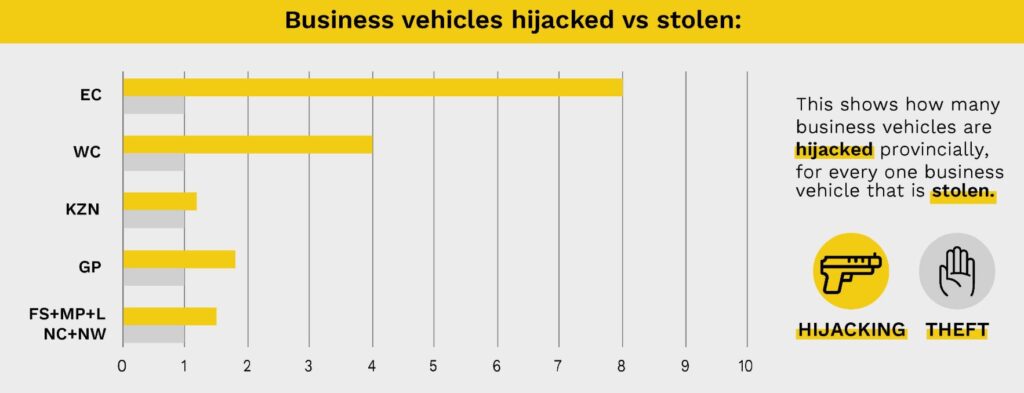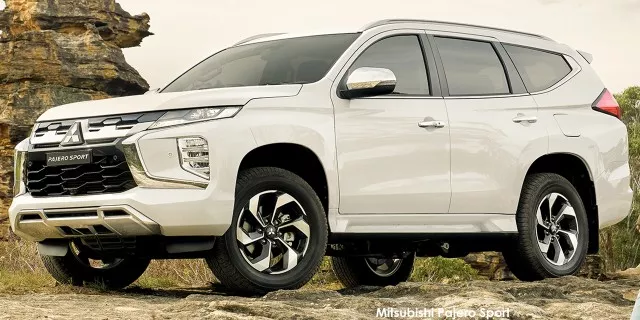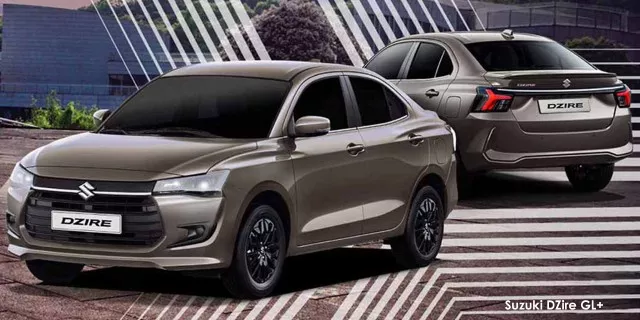
Vehicle telematics firm Tracker’s latest Vehicle Crime Index shows that car thieves in South Africa have changed up their operating hours.
In the first half of 2024, most vehicle thefts were reported between 11h00 and 15h00 and on Saturdays.
In the second half of the year, while the majority of thefts were still reported on Saturdays, they now occurred most frequently between the hours of 16h00 and 21h00.
The changing of business hours could be a result of various factors, such as increased police vigilance during daytime hours, criminals preferring to work under the cover of darkness, or thieves choosing to target cars at victims’ homes instead of in public areas.
Meanwhile, hijackings remained consistent throughout the year.
The majority of cases in the first half of 2024 were reported on Fridays between 16h00 and 20h00, with the second half seeing one hour added at the end of that bracket.
This suggests that the hijackers choose their time of attack wisely, electing to target tired motorists after a long week of work when they’re at their least vigilant and perhaps stuck in traffic.
The day of week and times of day in which hijackings and thefts were most frequently reported in 2024, according to Tracker, were:
| Period | Hijackings | Thefts |
|---|---|---|
| H1 2024 | Fridays, between 16h00 and 20h00 | Saturdays, between 11h00 and 15h00 |
| H2 2024 | Fridays, between 16h00 and 21h00 | Saturdays, between 16h00 and 21h00 |
Private vs Business vehicles
Tracker’s vehicle crime statistics for July to December 2024 revealed that, across the country, hijackings comprise 56% of all vehicle crime incidents, while theft accounts for 44%.
However, hijacking becomes more pronounced when evaluating business-owned vehicles and specific provinces in South Africa.
The numbers show that business-owned vehicles are twice as likely to be hijacked than stolen, with just over half of these vehicles hijacked in Gauteng.
In the Western Cape, business-owned vehicles are four times more likely to be hijacked than stolen, and this rises to eight times in the Eastern Cape.
“In all regions, business-owned vehicle crime is skewed toward hijacking,” said Tracker.
Meanwhile, the national split between hijacking and theft for personal vehicles is roughly equal.
However, in Gauteng and KwaZulu-Natal, the two regions that account for most of the total vehicle crime, more personal vehicles are stolen than hijacked, at 52% and 61%, respectively.
In contrast, a personal vehicle is twice as likely to be hijacked than stolen in the Western Cape, rising to four times more likely in the Eastern Cape.

Countrywide, the likelihood of vehicle crime being a hijacking rather than a theft is 33% higher for business-owned vehicles compared to personal vehicles.
Business-owned vehicles are also 56% more likely to experience vehicle crime compared to personal vehicles.
Business-owned vehicles range from cargo trucks with trailers to courier vehicles delivering items ordered online.
“Crime targeting these vehicles proves highly lucrative, with criminals acquiring the vehicle, the goods being transported, and the driver’s personal belongings, e.g. mobile phone,” said Tracker.
These crimes often happen opportunistically when the vehicle is stopped along its route, for example, at a truck stop or in a driveway during a delivery.
Tracker highlights that hijackings remain a lucrative and highly efficient crime for perpetrators, hence its rising occurrence.
“As vehicle owners become more aware of early warning tools and free tracking apps, it is becoming increasingly difficult for criminals to steal a vehicle without detection,” it said.
“A hijacking, however, allows criminals immediate access to the vehicle and its contents, without needing to override tracking technology.”








